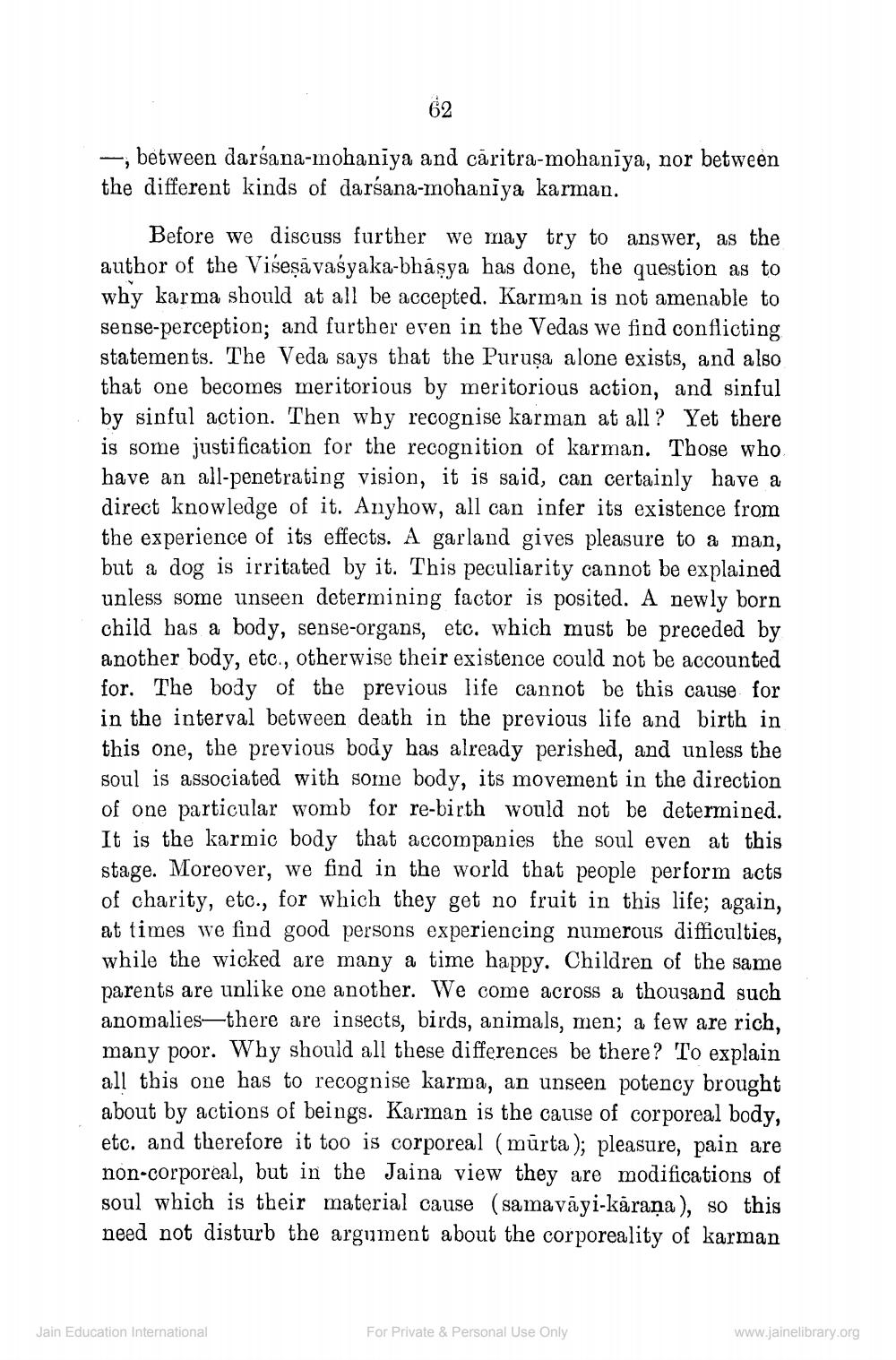________________
62
-, between darśana-mohaniya and caritra-mohaniya, nor between the different kinds of darśana-mohaniya karman.
Before we discuss further we may try to answer, as the author of the Višeşā vašyaka-bháşya has done, the question as to why karma should at all be accepted. Karman is not amenable to sense-perception; and further even in the Vedas we find conflicting statements. The Veda says that the Puruşa alone exists, and also that one becomes meritorious by meritorious action, and sinful by sinful action. Then why recognise karman at all? Yet there is some justification for the recognition of karman. Those who have an all-penetrating vision, it is said, can certainly have a direct knowledge of it. Anyhow, all can infer its existence from the experience of its effects. A garland gives pleasure to a man, but a dog is irritated by it. This peculiarity cannot be explained unless some unseen determining factor is posited. A newly born child has a body, sense-organs, etc. which must be preceded by another body, etc., otherwise their existence could not be accounted for. The body of the previous life cannot be this cause for in the interval between death in the previous life and birth in this one, the previous body has already perished, and unless the soul is associated with some body, its movement in the direction of one particular womb for re-birth would not be determined. It is the karmic body that accompanies the soul even at this stage. Moreover, we find in the world that people perform acts of charity, etc., for which they get no fruit in this life; again, at times we find good persons experiencing numerous difficulties, while the wicked are many a time happy. Children of the same parents are unlike one another. We come across a thousand such anomalies—there are insects, birds, animals, men; a few are rich, many poor. Why should all these differences be there? To explain all this one has to recognise karma, an unseen potency brought about by actions of beings. Karman is the cause of corporeal body, etc. and therefore it too is corporeal (mūrta); pleasure, pain are non-corporeal, but in the Jaina view they are modifications of soul which is their material cause (samavāyi-kāraņa), so this need not disturb the argument about the corporeality of karman
Jain Education International
For Private & Personal Use Only
www.jainelibrary.org




